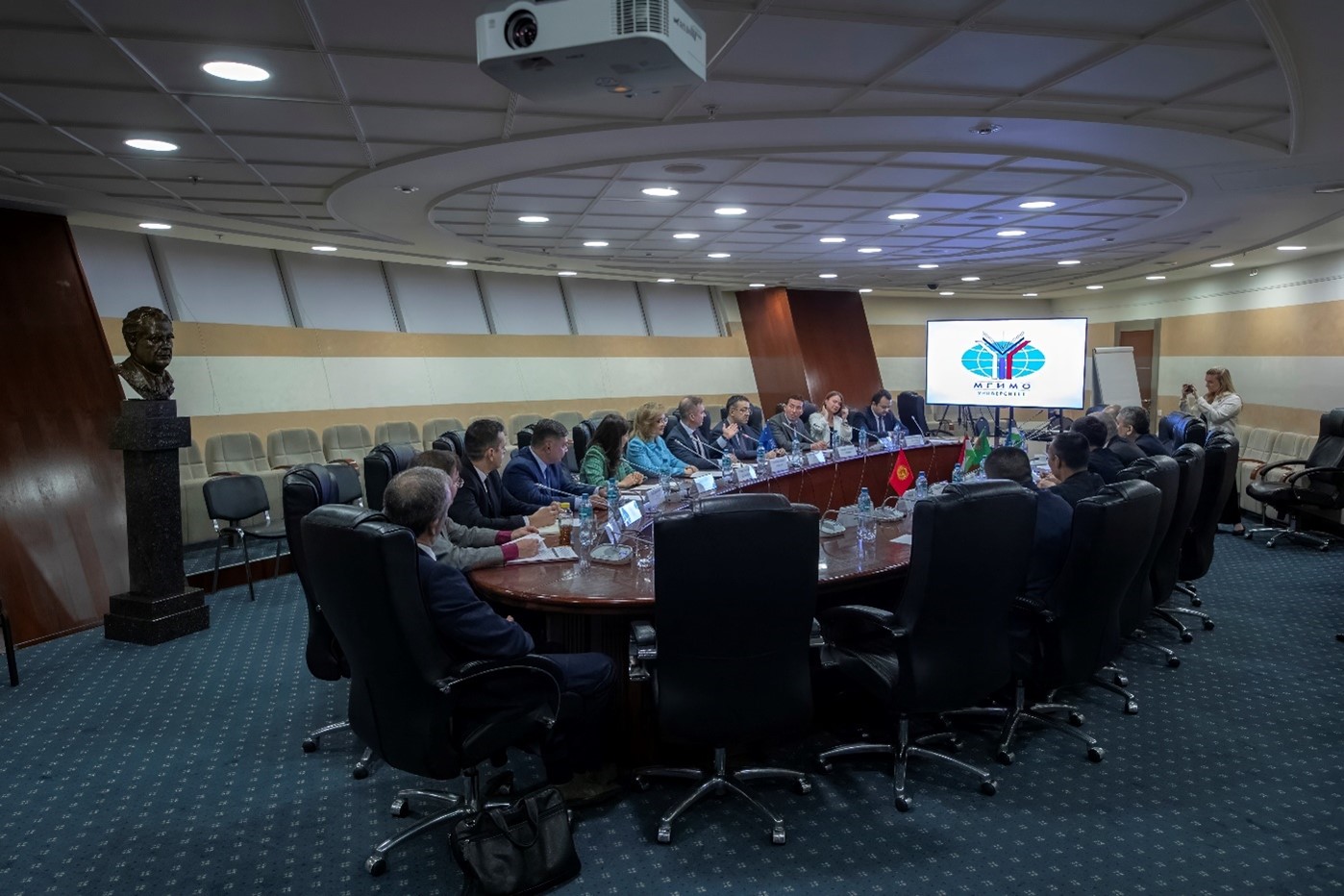-

30 October, 2024
On October 28 this year, by the initiative of the Secretariat of the Eurasian Group on Combating Money Laundering and Financing of Terrorism (EAG), a briefing was held in Moscow at the Eurasian Studies Institute of the Moscow State Institute of International Relations of the Ministry of Foreign Affairs of the Russian Federation with the participation of Ambassador Extraordinary and Plenipotentiary of Turkmenistan to the Russian Federation H.E. Mr. Esen Aydogdyyev and representatives of diplomatic missions of the Kyrgyz Republic, the Republic of Tajikistan and the Republic of Uzbekistan. The event covered in detail the issues of preparation of these countries for the 3rd round of mutual evaluations of the EAG and provision of the necessary technical assistance (TA) by the Eurasian Group.
It was noted that as a FATF-style regional body, the EAG conducts mutual evaluations, in which the national anti-money laundering and countering the financing of terrorism (AML/CFT) systems of the Member States are evaluated for compliance with international standards. In June 2024, following the approval of India's mutual evaluation report by the FATF Plenary, all of the EAG Member States completed the 2nd round of evaluations. A new, third, round of mutual evaluations will begin in late 2025.
Since the primary goal of the Eurasian Group is to improve the national anti-money laundering systems of the countries of the region in accordance with the requirements of the relevant international organizations, primarily the FATF, the new round of mutual evaluations of the EAG will allow to determine whether the work in this direction has been properly organized both at the state level and within the Group itself.
Moreover, we should not forget that the results of mutual evaluation are largely perceived by foreign business circles as a “business card” of the country and an indicator of the reliability of its financial system. In this context, the AML/CFT systems of Member States should be considered not only from the perspective of combating crime, but also as an important tool in ensuring socio-economic stability and financial security. Thus, poor mutual evaluation results could incur not only reputational costs, but also damage the economic development of a State.
It was emphasized that mutual evaluations do not assess the financial intelligence unit or the supervisory or law enforcement units individually, but the country's AML/CFT system as a whole. With this in mind, national coordination at a high political level, as well as the broad participation of agencies in the preparation and conduct of the mutual evaluation was important.
The reasons of lack of effectiveness in the state supervision and monitoring in the AML/CFT, revealed during the previous assessments, as well as the work of the Member States aimed at their elimination, were noted.
The attention of the participants was drawn to the fact that the schedule of the 3rd round of assessments was approved by the EAG Plenary meeting, their terms are known for each of the countries of the Eurasian Group.
During the briefing it was emphasized that in accordance with its statutory documents and the Strategy for 2024-2028, the EAG not only conducts mutual evaluations of the Member States, but also provides them with the necessary assistance. In particular, within the framework of the Eurasian Group all conditions for successful completion of assessments have been created: training of expert-assessors is carried out on a systematic basis, consulting support is provided to explain the new FATF Standards, ML/TF risks are assessed and measures are taken to mitigate them. Effective cooperation mechanisms have been developed and implemented, ranging from meetings of financial intelligence officers to events involving law enforcement and supervisory authorities, the private sector and parliamentarians. The International Compliance Council, the AML/CFT Forum, the Supervisory Forum, and the Parliamentarians' Forum are functioning successfully. An initiative to organise a Prosecutors' Forum has been approved.
A special focus was made on the issue of providing TA to the countries of the Eurasian region. It was emphasized that the system of providing targeted support to the Member States on the implementation of the FATF Standards and best practices has been created within the EAG margins, in the framework of which relations with development partners in the region and in the world have been built. TA donors and providers are focused on meeting the real needs of countries and achieving tangible results. At the current stage, the implementation of measures within the national TA plans aimed at addressing the shortcomings identified in the previous mutual evaluation and preparing for the next round of mutual evaluations is of particular importance.
In conclusion, it was noted that, taking into account the above, interaction within the framework of the EAG is of particular importance for the countries of the Eurasian region. Being an active participant of the FATF Global Network and taking a leading position in it, EAG has proved to be a reliable partner in the development of anti-money laundering systems of the Member States and achievement of their national development priorities.
EAG Secretariat

 Login to your account
Login to your account Eng
Eng Рус
Рус